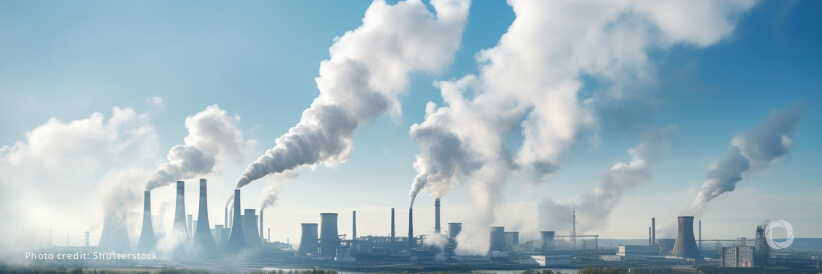The UK’s International Climate Finance (ICF), helps developing countries limit and manage the impacts of climate change, mitigate further global warming from emissions, and avert, minimize, and address loss and damage.
The published results demonstrate the transformational impact of the UK’s International Climate Finance from 2011, ensuring developing countries have access to clean energy and innovative technology to drive the global transition to net zero while supporting the most vulnerable countries experiencing the worst impacts of the climate crisis.
Over the last 12 years, the UK has:
- Supported over 82 million people with improved access to clean energy.
- Avoided or reduced 105 million tonnes of greenhouse gas emissions, equivalent to taking all UK cars off the road for approximately 1 year and 7 months.
- Avoided 750,000 hectares of ecosystem loss, the equivalent of more than 1 million football pitches.
Through UK International Climate Finance, UK aid is investing in innovative solutions to tackle climate change, such as energy efficiency and forestry across the Global South to demonstrate their commercial viabilities:
- The Climate Public Partnership (CP3) program has been addressing the dual challenges of climate change and access to clean, affordable energy by building a public-private partnership to unlock private investments. By investing in private equity funds, including £50 million to the Catalyst Fund, over a portfolio of 124 projects, UK aid has successfully mobilized over £86 million of private finance to date.
- In Madagascar and Indonesia, UK aid is helping to protect, restore, and sustainably manage mangrove forests while reducing the poverty of the coastal communities that rely on them. By working together with national governments, local communities, and the private sector, the Blue Forests Programme developed green business opportunities based on sustainable mangrove forestry and fisheries management and helped protect around 58,000 hectares of mangrove forests and delivered around 660,000 tonnes of carbon dioxide savings.
These results come as the UK has taken swift action at home to tackle the climate crisis and provide energy security for British families and businesses. The UK is the first major economy to set a landmark goal of delivering clean power by 2030.
In the space of a few months, the Government has already:
- Lifted the ban on onshore wind in England to roll out a new supply of clean and cheap power.
- Delivered the most successful renewable energy auction to date, securing enough clean power to supply the equivalent of 11 million homes.
- Introduced Great British Energy, creating the next generation of skilled jobs and protecting families from volatile fossil fuel prices that helped drive the cost of living crisis.
- Consented unprecedented amounts of nationally significant solar – 2GW – more than the last 14 years combined.
The UK will use that strong action at home to accelerate global action at the COP29 summit in Baku, raising ambition to agree on a new financial target to support developing countries in tackling climate change.
Minister for International Development, Anneliese Dodds said: “International climate finance is at the heart of our climate and development objectives and our Mission to be a clean energy superpower. Our work – and the billions in private finance it has unlocked – will help the most vulnerable who are experiencing the worst impacts of the climate crisis and enable partners to meet the objectives of the Paris Agreement. Our programmes are making a positive difference to people’s lives and helping to build a liveable planet for all, now and in the future”.
UK Climate Minister Kerry McCarthy said:”The UK has played a key role in supporting the most vulnerable communities across the globe in tackling climate change while alleviating poverty and improving access to cleaner energy sources. But there is more work to do, and unlocking greater global climate finance is crucial in addressing the needs of developing countries who are on the frontline of the crisis. That’s why the UK will be pushing for an ambitious finance goal for climate aid at COP29. We will continue to champion the voices of those most affected and we will lead from the front in speeding up the global transition to net zero”.
UK Minister for Nature Mary Creagh said: “We have a responsibility to tackle the biggest challenges facing our planet. This means putting nature loss and climate change at the forefront of the global agenda. We are seeing an unprecedented decline in species and the loss of some of the world’s richest and most diverse ecosystems. Our climate programs play a vital role in protecting and restoring nature and supporting the communities most affected by this crisis”.
These results come ahead of this year’s UN climate summit COP29 in Baku, which will see countries come together to negotiate a new financial target for supporting developing countries in their climate actions, known as the New Collective Quantified Goal (NCQG).
In addition to UK ICF, the UK’s world-leading expertise in green finance and net zero industries is supporting developing countries to achieve their own climate goals through leveraging private sector funds. Since 2011, the UK has helped mobile £7.8 billion of private finance for climate change purposes.
The £11.6 billion commitment to the ICF remains the government’s intention as we undertake the spending review. Speaking at the UN General Assembly on 27 September the Prime Minister made clear the UK would continue to be a leading contributor to international climate finance.

